Welcome, dear readers, as always.
If you grew up, as I did, with the 1939 film, The Wizard of Oz,

but had never read the original,
L. Frank Baum’s The Wonderful Wizard of Oz, 1900,
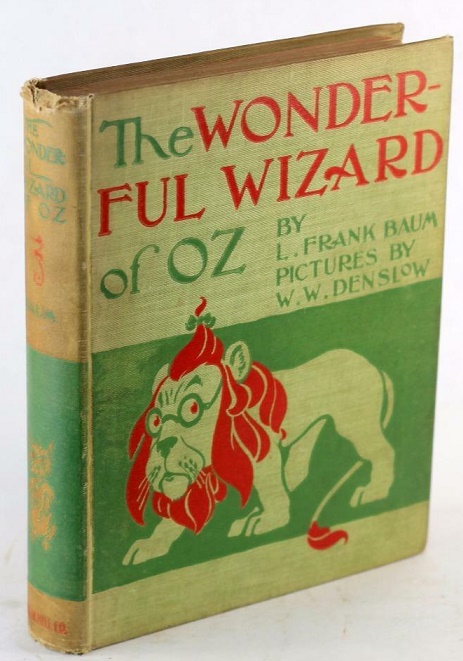
you would be surprised to open the book and find that Chapter 1 is entitled “The Cyclone”,
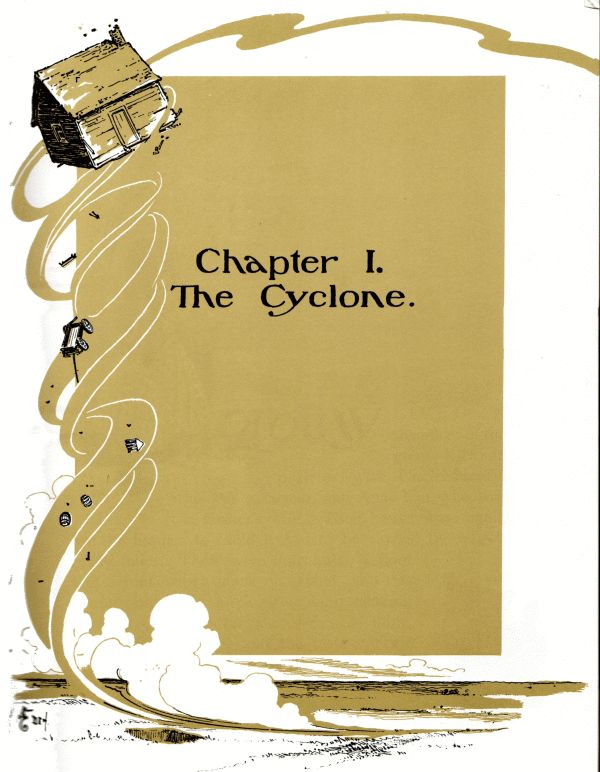
which, considering the use of that terrifying force of nature in the story isn’t surprising, but that “Miss Almira Gulch”, the initial incarnation of the story’s main antagonist, with her wonderful last name (a “gulch” is, as Etymonline tells us, a “deep ravine” suggesting that Miss Gulch is empty—and treacherous, as “ to dry gulch” someone is archaic Wild West slang for “to ambush”) is not to be seen.

As a small child, I found almost everything about her disturbing. As someone who, initially, wanted to deal with Toto and had the economic power to do it (shades of 1930s social commentary about the 1%), she was bad enough. It was the green skin of her next incarnation and those dagger-like fingernails, however,
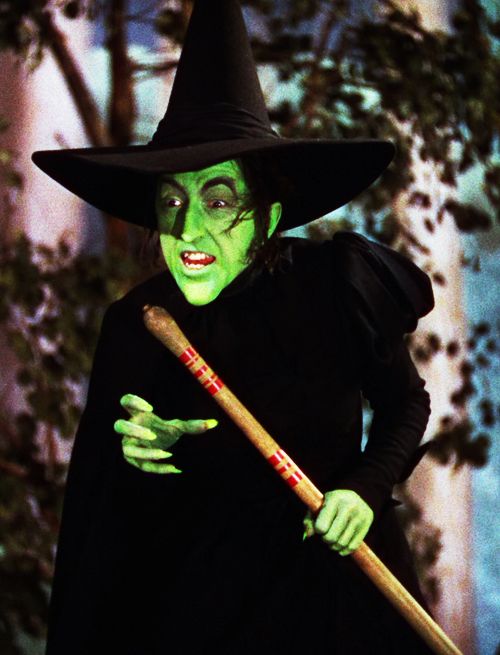
which were at the edge of nightmares, and even more so the menace of flight—not only her own skywriting,

but her nasty little airborne monkeys.
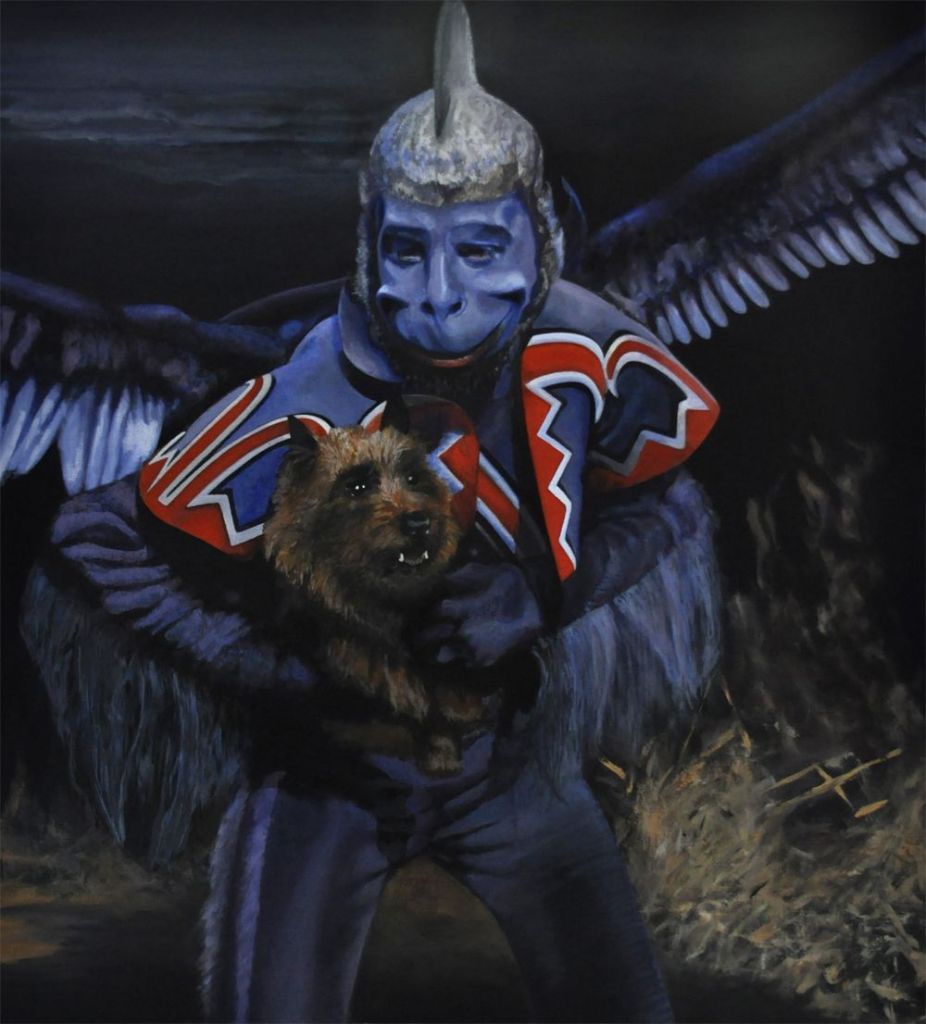
These seemed almost too prescient for what was about to happen in the real world as, on 1 September, 1939, only about two weeks after the Hollywood premiere of the film on 15 August, Germany invaded Poland, and, in less than a year, Denmark, Holland, Norway, and France, major weapons being a deadly form of those flying monkeys—

(by Mike Chappell, a favorite military artist)
paratroopers, and dive bombers, the notorious Ju87, “Stuka” (short for “Sturzkampfflugzeug”—“dive bomber”).

To add to the effect of having such a thing racing down to drop a bomb on you, sirens were attached to the landing gear or wings, the so-called “Jericho trumpets” (You can read more about them here: https://www.warhistoryonline.com/instant-articles/trumpets-jericho-luftwaffe.html And you can hear one here: https://www.youtube.com/watch?v=80bOdm2P9Y8 ), giving a wailing, screeching sound to the attacker in hopes of destroying morale even before a bomb hit. Although designed to be support for infantry and armor, numbers were employed in the air campaign against Britain and, although Oxford was never attacked as the great ports and manufacturing centers were, I wonder if Tolkien, as a volunteer air raid warden, ever heard that sound overhead.

Even if it only appeared in a newsreel, it must have been an unforgettable noise and my wondering brought me to this:
“And Minas Morgul answered. There was a flare of livid lightnings: forks of blue flame springing up from the tower and from the encircling hills into the sullen clouds. The earth groaned; and out of the city there came a cry. Mingled with harsh high voices as of birds of prey, and the shrill neighing of horses wild with rage and fear there came a rending screech, shivering, rising swiftly to a piercing pitch beyond the range of hearing. The hobbits wheeled round towards it, and cast themselves down, holding their hands upon their ears.” (The Two Towers, Book Four, Chapter 8, “The Stairs of Cirith Ungol”)
In Minas Tirith, Pippin heard something very similar:
“Suddenly as they talked they were stricken dumb, frozen as it were to listening stones. Pippin cowered down with his hands pressed to his ears…”
Not Stukas diving out of the clouds to bomb the city,

but
“…now wheeling swiftly across it, like shadows of untimely night, he saw in the middle airs below him five birdlike forms, horrible as carrion-fowl yet greater than eagles, cruel as death. Now they swooped near, venturing almost within bowshot of the walls, now they circled away.
‘Black Riders!’ muttered Pippin. ‘Black Riders of the air!’ “
And this was not the first time that any of the hobbits had heard that terrible sound:
“Pippin knew that shuddering cry that he had heard: it was the same that he had heard long ago in the Marish of the Shire, but now it was grown in power and hatred, piercing the heart with a poisonous despair.”
It’s unclear if Frodo and Sam had heard the same cry at Cirith Ungol, but certainly what Pippin heard and to which he reacted violently:
“Another long screech rose and fell, and he threw himself back again from the wall, panting like a hunted animal.” (The Return of the King, Book Five, Chapter 4, “The Siege of Gondor”)

(Alan Lee)
had the same effect—and, in fact, the same effect which Stukas were intended to have upon their victims—just as the Wicked Witch, aka, Miss Gulch—had had a similar effect upon me as a little boy,

even without her creepy little simian assistants.
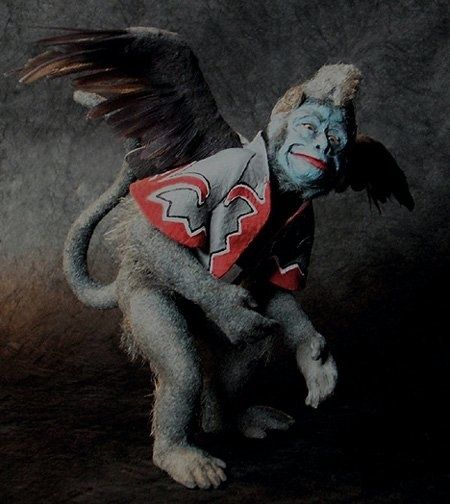
Thanks, as ever, for reading.
Stay well,
When going outdoors, always cast a wary eye upwards,
And remember that, as always, there’s
MTCIDC
O
PS
In case you don’t have a first edition of The Wonderful Wizard of Oz with its original illustrations, here it is for you: https://www.youtube.com/watch?v=80bOdm2P9Y8